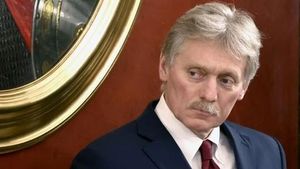In a significant disciplinary action, two retired brigade generals of the French Army, André Coustou and Paul Pellizzarri, have been officially removed from their ranks by presidential decree for failing to uphold their duty of reserve. This decision was published in the Official Journal on April 19, 2025, following a series of warnings regarding their conduct.
The controversy surrounding these generals dates back to April 2021 when they co-signed a tribune that was published in the ultra-conservative weekly Valeurs Actuelles. The document, which came out on April 21, coincided with the 60th anniversary of a failed coup attempt by generals opposed to President Charles de Gaulle's policies during the Algerian War. In this tribune, the signatories, including Coustou and Pellizzarri, expressed grave concerns about the "decomposition" of France, highlighting issues such as "hatred between communities" fostered by what they termed "a certain anti-racism," as well as the dangers posed by "Islamism and the hordes of the suburbs."
They asserted their readiness to support political measures aimed at safeguarding the nation and cautioned that if the current "laxity" persisted, it might necessitate intervention by active military personnel. This assertion struck a nerve in a country where the military is traditionally expected to remain apolitical, often referred to as "la Grande Muette" (the Great Silent One) due to its historical reluctance to engage in political discourse.
The publication of this tribune sparked a heated debate in France, particularly as it was released just a year before the 2022 presidential election. Florence Parly, who was the Minister of the Armed Forces at the time, condemned the generals' remarks as "irresponsible" and pledged that appropriate sanctions would follow. This incident underscores the delicate balance the French military must maintain regarding political expression.
In addition to their public statements, both Coustou and Pellizzarri were involved in a legal complaint filed with the Court of Justice of the Republic against several government officials, including Prime Minister Gabriel Attal and Minister of the Armed Forces Sébastien Lecornu. Their complaint, which was ultimately dismissed without action, aimed to challenge the transfer of military equipment from French stocks to Ukraine.
The decrees for their removal from military ranks were described as a "radiation from the ranks by disciplinary measure" due to their failure to maintain the appropriate duty of reserve expected of retired military personnel. Although they are now retired, both generals remain subject to potential recall, which adds another layer of complexity to their situation.
The implications of this disciplinary action extend beyond the individuals involved. It raises questions about the role of military figures in political discussions and the extent to which they can express their views without facing repercussions. The French military's reputation for neutrality is at stake, especially as political tensions continue to rise in the country.
As France grapples with issues of national identity and security, the actions of these retired generals may resonate with certain segments of the population who share their concerns. Their removal, however, serves as a cautionary tale for other military personnel who might consider voicing similar opinions publicly.
In summary, the removal of André Coustou and Paul Pellizzarri from the French Army highlights the ongoing tensions between military duty and personal expression within the context of French politics. The fallout from their actions and the government's response will likely continue to be a point of contention in the public discourse as France navigates its complex political landscape.





